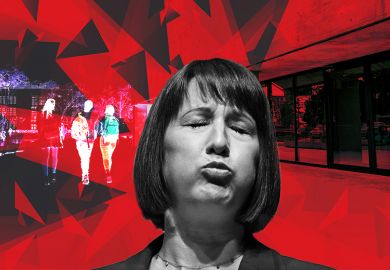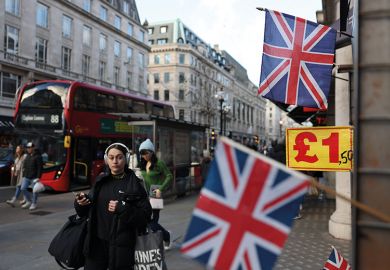The majority of students in England oppose the recent rise in tuition fees but opposition weakens significantly once the increase in maintenance loans is factored in, a survey has found.
A survey of 1,100 students by the Higher Education Policy Institute (Hepi) found that the “significant majority” of students (68 per cent) opposed the rise, under which fees will rise this autumn for the first time since 2017, from £9,250 to £9,535, with the majority (55 per cent) strongly opposed.
Students were then presented with the financial challenges facing universities, and claims that the rise in fees was “necessary”. But 56 per cent of students disagreed that the fee rise was “necessary”, with female students and those from disadvantaged backgrounds more likely to disagree.
Josh Freeman, author of the research, said that while the rise in fees came as a “relief” to higher education institutions, “these results show students oppose the increase in swathes and are sceptical of the argument that universities need more money”.
However, he noted that “as maintenance support went up at the same time, the fee rise was made more palatable”, acting on concerns that maintenance loans were not keeping up with inflation, forcing record numbers of students to take on part-time work.
When students were asked to consider the fee rise alongside the rise in maintenance loans, under which financial support for students will increase by up to £400, support “jumped up”, the report says.
Some 32 per cent of respondents saw the overall package as positive, with an equal number (31 per cent) seeing it as negative. But overall, the majority (34 per cent) saw it as “equally good and bad”. There was a significant gender divide in the results, with only 23 per cent of women thinking the overall package of tuition and maintenance loan reform was positive, compared with 43 per cent of men.
Mr Freeman, Hepi’s policy manager, added that while large numbers of students voted for Labour in the last election, “the move may not be politically costly for the government, for several reasons”.
“Unlike the Liberal Democrats in 2010, Labour made no tuition fee commitment in its election manifesto, so this rise does not break its promises to the electorate. And by the time of the next election, most current students will have graduated – so fee rises are unlikely to be their top priority,” he said.
The survey comes after a separate survey by YouGov found that 53 per cent of those who began their degree from the 2012-13 academic year onwards – the first year where fees rose from £3,000 a year to £9,000 – think they received “poor value” for their outlay.
Register to continue
Why register?
- Registration is free and only takes a moment
- Once registered, you can read 3 articles a month
- Sign up for our newsletter
Subscribe
Or subscribe for unlimited access to:
- Unlimited access to news, views, insights & reviews
- Digital editions
- Digital access to THE’s university and college rankings analysis
Already registered or a current subscriber?








